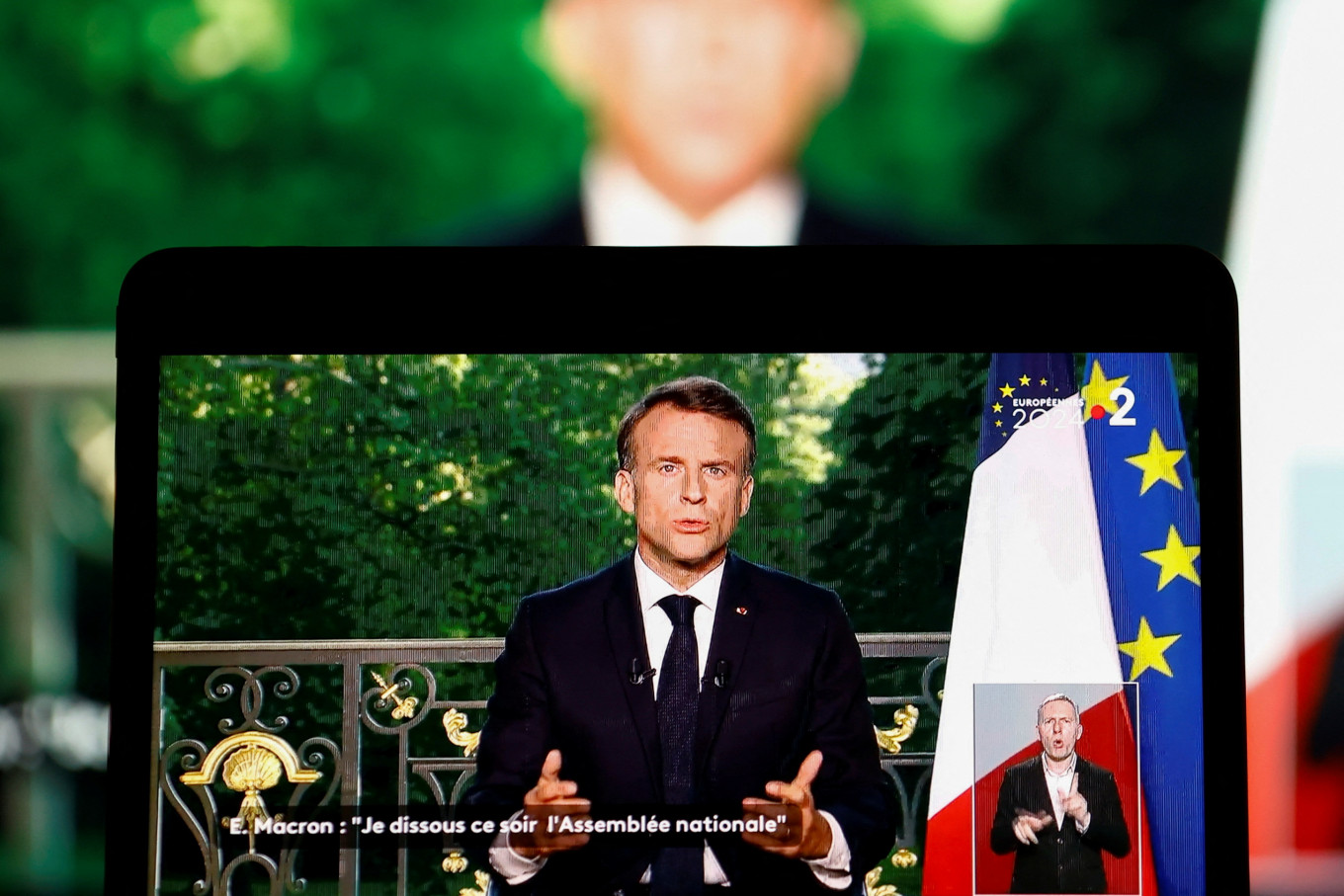Popular Reads
Top Results
Can't find what you're looking for?
View all search resultsPopular Reads
Top Results
Can't find what you're looking for?
View all search resultsFrench troubles won't undermine Europe’s strong foundation
Rather than becoming a catalyst for a new eurozone crisis, the recent collapse of the French government, along with a similar collapse in Germany and the looming threat of a second Trump administration, could instead propel the bloc to take a big step in economic development.
Change text size
Gift Premium Articles
to Anyone
F
rance faces political paralysis, its debt exceeds 110 percent of GDP, and its cost of borrowing recently eclipsed that of Greece, kindling fears that it could be the catalyst for a new eurozone crisis.
But comparing the bloc’s perilous state during the global financial crisis (GFC), when it faced the real possibility of unraveling, to the situation today actually reveals how much stronger it now is.
France is currently in the spotlight after its fragile government collapsed in early December. The snap parliamentary elections held in July had delivered a fractured National Assembly.
President Emmanuel Macron had sought to construct a lasting administration by appointing veteran politician Michel Barnier as prime minister after the July elections. But when Barnier pressed for budget cuts to curb a deficit that is predicted to hit 6.1 percent of GDP this year, lawmakers from both the right and left combined to vote the budget down and oust him in a no-confidence vote, the first time a French premier has been jettisoned in this manner since 1962.
As these events played out, the 10-year benchmark French bond yield briefly rose above that of its Greek counterpart, raising concerns that France might be the new Greece.
But when the 10-year Greek bond yield peaked in 2012, it was above 35 percent. That rate is now below 3 percent. So the French equivalent had to climb less than 60 basis points over the last year to reach roughly the same level.
When examining the changes in eurozone bond yields in recent years, what leaps out is how Greece has turned itself around; not the modest deterioration France has experienced.
After the GFC hit Europe in the late 2000s, Greece’s true fiscal position was unmasked, and its debt costs spiraled. The country received bailouts from the European Union and the International Monetary Fund in exchange for austerity measures. Greece suffered a savage recession for a decade and experienced bouts of political instability.
But the current center-right government has helped to restore economic health and has run primary budget surpluses that have enabled the country to cut its still-oversized debt load. The country’s economy grew by 2.0 percent last year.
France may require a mild dose of the same fiscal medicine, but it is starting in a far stronger position than Greece. The French economy is much more highly developed and diverse, and is more than 10 times larger.
S&P Global Ratings affirmed France’s credit rating two weeks ago, on the expectation that the country would push ahead with budget consolidation. More broadly, it said, “France remains a balanced, open, wealthy and diversified economy, with a deep domestic pool of private savings.”
The last point is crucial. Even if international investors were to take flight – and there is no sign of this – a sizable supply of domestic money remains available to fill the gap.
While the eurozone remains an incomplete project, it’s important to note how much the bloc’s banking system has been strengthened since the GFC, and to remember how consistently the European Central Bank (ECB) has proven its willingness and ability to act to avert crises in the region.
None of this means that policymakers in Paris or other European capitals are sanguine about the bloc’s economic outlook.
In some ways, France’s economic challenges pale in comparison to those of Germany, whose government also recently collapsed. The eurozone’s largest economy is struggling with the consequences of years of underinvestment, now that its once-mighty manufacturing sector has sputtered.
Moreover, the eurozone, which has seen its productivity growth lag behind that of the United States for years, now faces the threat of tariffs from the incoming administration of US president-elect Donald Trump.
But it may be that these trade threats end up spurring the bloc to take another major step in its economic development. History shows it acts most decisively when backed into a corner.
Former ECB chair Mario Draghi recently delivered a blue print for much-needed economic reforms calling for an additional 800 billion euros (US$840 billion) in annual investment by the bloc.
The European Commission and the ECB have both backed Draghi’s plan, and even the head of the typically hawkish Bundesbank has called for Germany to loosen its spending restrictions.
If elections in Germany and France deliver stronger governments next year, it is possible we will eventually remember 2025 not as the start of another eurozone crisis, but as the year the region took a large step forward in its journey toward sustainable economic growth.
---
The writer is a former head of communications at the Bank of England and former senior editor at Reuters.











